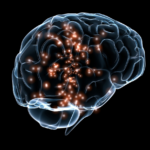According to a team of researchers at Columbia University, higher intakes of added sugars and refined carbohydrates are associated with an increased risk of insomnia among women. The findings were published in the American Journal of Clinical Nutrition.
“Previous studies have shown mixed results on the association between carbohydrate intake and insomnia. However, any influence that refined carbohydrates have on risk of insomnia is likely commensurate with their relative contribution to the overall diet, so studies are needed that measure overall dietary glycemic index (GI), glycemic load, and intakes of specific types of carbohydrates,” the findings read.
For the study, researchers aimed to determine if carbohydrate intake was linked to insomnia. As part of the study, over 50,000 participants were examined to identify if higher dietary glycemic index (GI) increased the chances of developing the sleep disorder.
“This was a prospective cohort study with postmenopausal women who participated in the Women’s Health Initiative Observational Study, investigating the relations of GI, glycemic load, other carbohydrate measures (added sugars, starch, total carbohydrate), dietary fiber, and specific carbohydrate-containing foods (whole grains, nonwhole/refined grains, nonjuice fruits, vegetables, dairy products) with odds of insomnia at baseline and after 3 y of follow-up (between 1997 and 2001),” the study’s co-authors write.
Foods with higher glycemic index, like added sugars, rice, and white bread, researchers note, triggers a faster increase in blood sugar, releasing insulin and hormones, like adrenaline and cortisol. Such changes may affect sleep quality.
The findings concluded that women were at a greater risk of insomnia when the dietary glycemic index is higher as a result of increased intake of added sugars and processed grains. The risk for insomnia, could be reduced, however, by initiating a diet of vegetables and whole fruits, the study indicated.
“Higher intakes of dietary added sugars, starch, and nonwhole/refined grains were each associated with higher odds of incident insomnia. By contrast, higher nonjuice fruit and vegetable intakes were significantly associated with lower odds of incident insomnia,” researchers found.
“Also, higher intakes of dietary fiber, whole grains, nonjuice fruit, and vegetables were significantly associated with lower odds of prevalent insomnia.”
“The results suggest that high-GI diets could be a risk factor for insomnia in postmenopausal women. Substitution of high-GI foods with minimally processed, whole, fiber-rich carbohydrates should be evaluated as potential treatments of, and primary preventive measures for, insomnia in postmenopausal women,” the study concluded.


